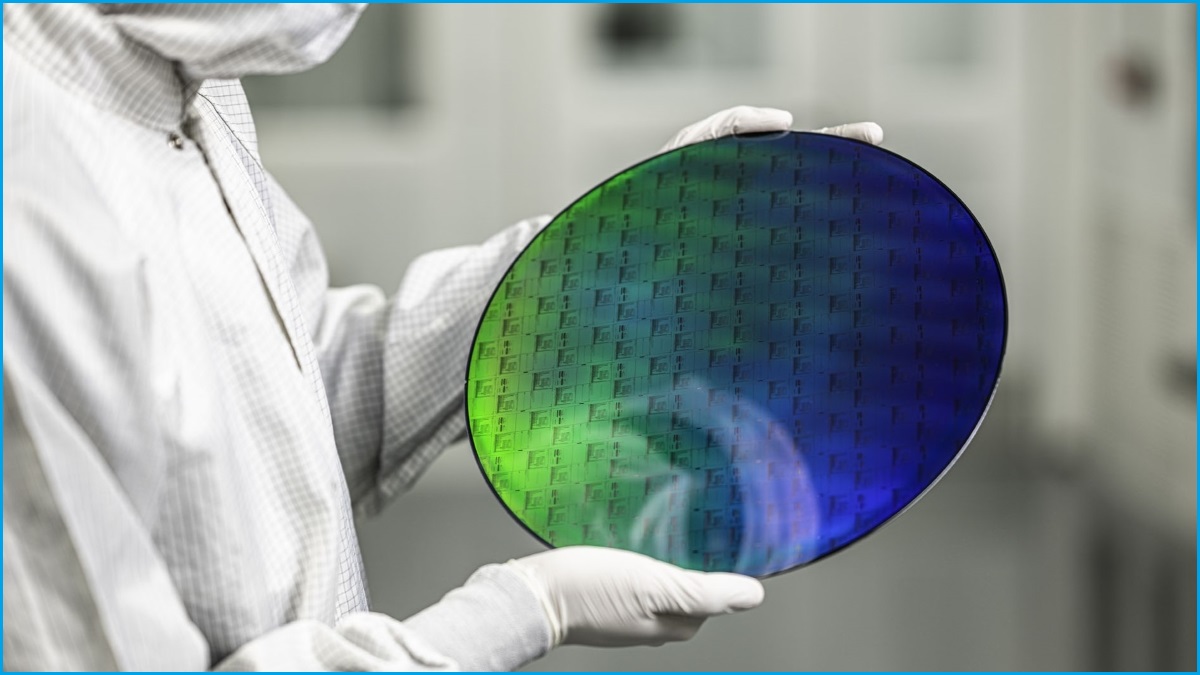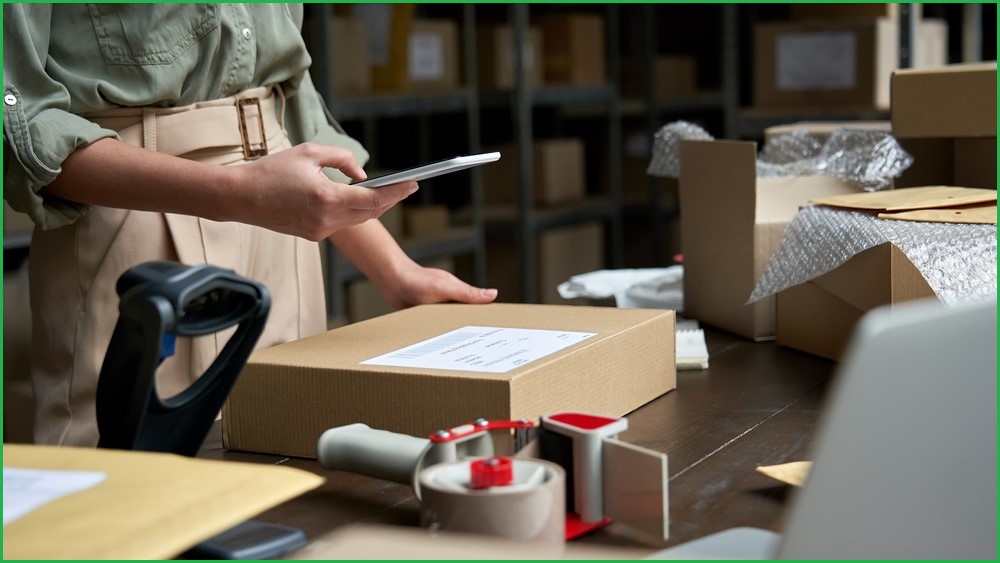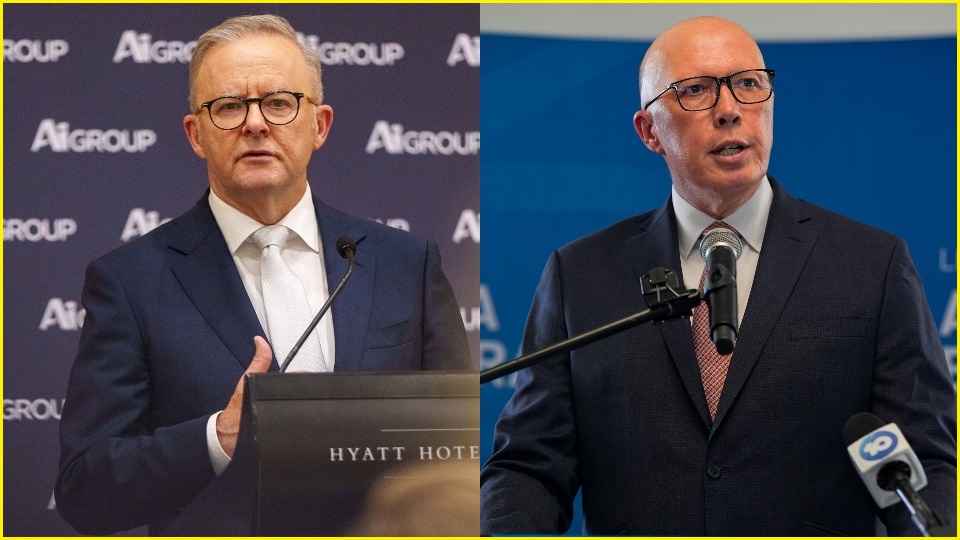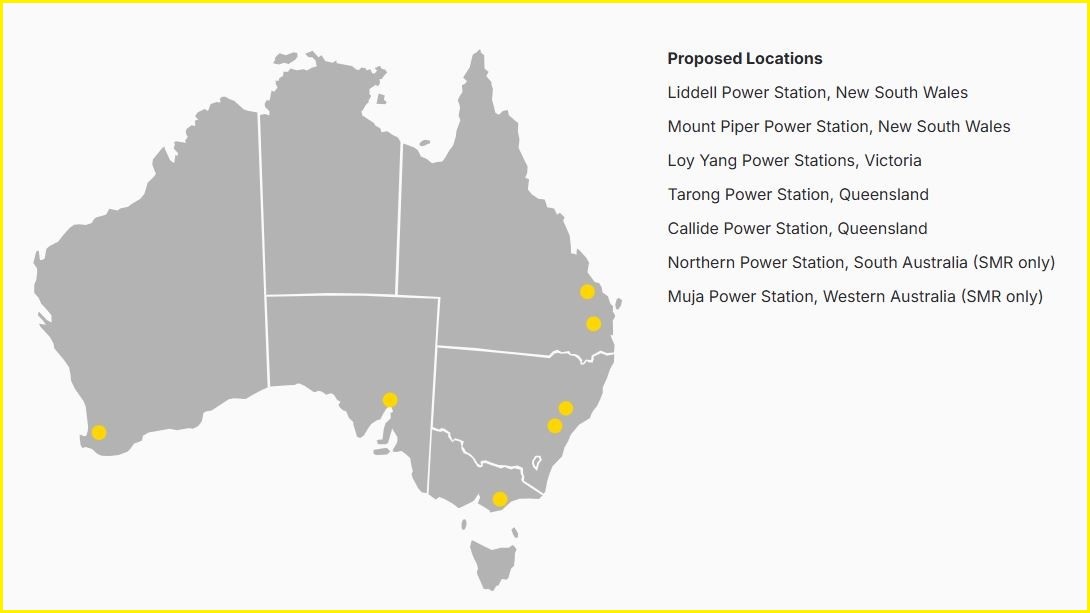As Anthony Albanese and Peter Dutton face off to be Australia's prime minister, the incumbent Labor government and the Liberal-National Coalition have outlined several contrasting policies, including when it comes to technology.
With Australians preparing to vote in the federal election this Saturday, 3 May, Information Age looks at some of the key technology policies from the two major parties which could shape the nation over at least the next three years.
Scroll down or click the topics below to learn more:
- Powering Australia
- Driving Australia
- AI, quantum, and satellites
- Small business tech upgrades
- Innovation, investment, and STEM
- Wrangling social media and streaming giants
- Cryptocurrency and digital assets
- Working from home and non-compete clauses
- Migration and international students
Powering Australia
There is a stark contrast between the two major parties when it comes to energy technologies.
Labor has pledged to continue its push towards increasing Australia’s use of renewables, backed up by gas, while the Coalition has proposed building nuclear power plants and increasing the nation’s use of gas.
The Coalition claims its plan, which it says would see projects built between the mid-2030s and 2050, would lower electricity prices, reduce emissions, and bolster the economy with new jobs.
However, the plan dismissed CSIRO and Australian Energy Market Operator (AEMO) research which found renewables were still the most affordable energy solution in Australia.
Locations proposed by the Liberal-National Coalition as sites for nuclear power plants. Image: Liberal-National Coalition
In that vein, Labor has promised a $2 billion expansion of the Clean Energy Finance Corporation to invest in renewable and low emissions technologies, with the goal of getting the national energy grid to 82 per cent renewables by 2030 — it’s currently at around 40 per cent.
Labor has also pledged to roll out a 30 per cent discount on the cost of installing a home battery to store energy from solar panels, which it claims would save households around $4,000 for a typical battery from 1 July.
Driving Australia
There are several differences between the two major parties when it comes to the future of electric vehicles (EVs) and internal combustion engine (ICE) vehicles.
Labor made EVs and plug-in hybrids (PHEVs) exempt from Fringe Benefits Tax (FBT) in 2022, before scaling back the discounts by removing PHEVs from the program at the end of March 2025.
Under the scheme, consumers save around $4,700 on a $50,000 EV if it is purchased through a salary sacrificing system.
The Coalition, despite initially displaying bipartisan agreement on the FBT exemptions, backflipped in late April when Dutton confirmed he would scrap the EV discounts if his party was to win government.
The Liberals argued scrapping the exemptions would save around $3 billion over the forward estimates and $23 billion over the medium term.
Instead, Dutton has promised to temporarily reduce the fuel excise tax paid when owners of petrol, diesel, and hybrid vehicles fill up, cutting it from 50 cents per litre to 25 cents per litre.
This reduction would last 12 months, and would save consumers around $6 billion, or an average of $14 per week for a one-car household, according to the Coalition.

Peter Dutton has promised to halve the fuel excise tax for 12 months. Image: Facebook
Another area where the major parties differ is the New Vehicle Efficiency Standard (NVES), which aims to encourage the sale of fuel-efficient vehicles by setting a cap on the average emissions allowed per kilometre for new cars.
While Dutton previously suggested he would scrap the NVES entirely, he has since pledged to keep the standard but remove financial penalties for automakers if they breach emissions caps — a stance Labor has criticised.
Finally, there is also the issue of a road user charge for EV owners, who do not currently have to pay a fuel excise tax.
While the Coalition has previously stated it would consider implementing such a charge for EVs, Dutton distanced himself from that idea earlier this week.
AI, quantum, and satellites
There has been some disagreement between the major parties when it comes to the cutting edge of powerful technologies such as generative artificial intelligence, quantum computing, and Low Earth Orbit satellites.
Labor has so far taken a somewhat cautious approach with AI, and has proposed regulations similar to those in the European Union, including mandatory guardrails for high-risk uses and possible bans for systems which could present a danger to society.
While industry groups were disappointed by the lack of funding for AI in the 2025-26 federal budget handed down in March, Labor says it is developing an AI capability plan to assess how the technology could improve Australia’s economy.
However, the Coalition has accused Labor of being indecisive when it comes to AI policy and has called for Australia to increase its skilled AI workforce.
While the Opposition has not detailed exactly which decisions it would take to capitalise on the AI boom, it has confirmed it would back industry-led AI adoption and safeguards against misuse.
The Liberal Party has also been critical of Labor’s investment in American company PsiQuantum, which is attempting to build the world’s first utility-scale quantum computer in Brisbane.
The deal saw the federal government pledge $470 million towards the company's goal, alongside a further $470 million investment pledged by Queensland’s former Labor government.
The new Liberal government in Queensland had been reviewing the state's investment in the PsiQuantum partnership, but has yet to announce any changes.

US firm PsiQuantum is attempting to build the world's first utility-scale quantum computer in Brisbane. Image: PsiQuantum / Supplied
On the cutting edge of telecommunications infrastructure, Labor has proposed a Universal Outdoor Mobile Obligation (UOMO) which it says would use satellites to help provide mobile voice and SMS coverage across nearly all of Australia by 2027.
The Coalition has shared mixed views on the plan, with some Liberal-National MPs welcoming it and others voicing concerns about its potential efficacy and cost.
Small business tech upgrades
When it comes to technology and small businesses, the Coalition has promised a tax deduction for organisations which invest in various digital tools.
Dubbed 'Tech Booster', the plan would allow small businesses to claim a $2,000 tax deduction for eligible technology investments over $4,000.
This would include technologies such as cybersecurity monitoring and training, ecommerce and point-of-sale tools, digital media such as websites, and connectivity tools such as satellite internet services.
Labor, meanwhile, has pledged to extend the Instant Asset Write Off for small businesses for another 12 months.
This would allow small businesses to deduct the full cost of eligible assets costing under $20,000 which are used or installed by 30 June 2026, including technology such as computers, tablets, tools, and office and kitchen equipment.
Albanese also says small businesses, like households, will be able to get discounts on the installation of batteries to help store energy from solar panels.

Small business owners can expect tax deductions for technology upgrades under both major parties. Image: Shutterstock
Innovation, investment, and STEM
Labor has been pursuing its innovation, investment, and STEM (science, technology, engineering, and mathematics) goals through several initiatives in recent years.
The government has backed all 11 recommendations from the Pathway to Diversity in STEM Review, promising to increase school students’ participation in STEM subjects and diversity in the STEM fields.
When it comes to innovation, Labor has engaged an independent review of Australia's flailing research and development (R&D) sector, which the government admitted had allowed some homegrown science to be lost overseas.
Labor has also promised to continue investing in local companies and startups through the National Reconstruction Fund (NRF), which has so far announced investments in a mining equipment company, an AI medical startup, and two quantum firms since late 2024.
The Coalition reportedly plans to shut down the NRF and redirect almost $14.5 billion still earmarked for the fund, with Dutton allegedly tossing up using the funds to help fund his nuclear power plan.
The Opposition has promised to establish a new statutory office within Treasury called Investment Australia, which it argues would cut red tape and improve Australia’s global competitiveness.
It said the sectors Investment Australia would focus most of its work on would be financial services, construction, and resources and energy.
Investment Australia would also bring entities such as the Foreign Investment Review Board, the Major Projects Facilitation Agency, and the Takeovers Panel under a single office.
Wrangling social media and streaming giants
There is some bipartisanship between Labor and the Coalition when it comes to handling the immense power of social media giants such as Meta, X, TikTok, and Snap.
Both major parties have voiced strong support for the under-16s social media ban, which was passed by parliament late last year and is due to come into force by the end of 2025.

Both the government and the Opposition have backed new rules preventing under-16s from having social media accounts. Image: Shutterstock
There has also been some agreement between the major parties on Australia’s News Media Bargaining Code, which has been used to encourage Meta (which owns the likes of Facebook, Instagram, and Threads) and search giant Google to make deals to pay for their use of Australian news content.
While Meta has since abandoned its deals, Labor has proposed introducing a News Bargaining Incentive which would waive a government fee for platforms which negotiated deals with media publishers.
Despite some American tech giants pressuring US President Donald Trump to push back against Australian laws such as the News Bargaining Code, Labor has vowed to continue this work, but the Coalition has accused it of not doing enough to make companies pay.
Labor has also faced some criticism for delaying until after the election plans to impose a so-called ‘duty of care’ to force Big Tech companies to keep users safe on their platforms.
On the streaming side of things, while the government failed to implement local content quotas for video streaming services such as Netflix, Amazon Prime Video, and Disney+ in 2024, it says it is still committed to regulating such platforms.
This is despite Labor experiencing pushback from the US government and US-based streaming companies.
The Coalition, meanwhile, has not shared an official policy on content quotas for international video streaming services.
Cryptocurrency and digital assets
Both major parties have announced plans to introduce reforms for digital assets such as cryptocurrency, should they win government.
Dutton's Coalition, which has previously accused Labor of inaction on cryptocurrency regulation and innovation, has committed to introducing a ‘Securing Australia as a Financial Centre’ bill within its first 100 days of government.
The Opposition says the bill would introduce a regulatory framework for digital assets and modernise payment systems, while cutting back unspecified red tape.

Labor and the Liberal-National Coalition both say they have plans to capitalise on cryptocurrency and the blockchain, while protecting Australian investors. Image: Shutterstock
The Albanese Labor government, for its part, unveiled a plan in March to support economic and innovation opportunities for digital assets and the blockchain, while protecting consumers through new rules for businesses which hold their crypto.
The government said it was working with markets regulator ASIC (Australian Securities and Investments Commission), which has pushed for tighter regulation of the sector, and had been informed by regulation already introduced in Singapore and the European Union.
Businesses providing certain stablecoins (whose value is pegged to another asset) and wrapped tokens (which mirror the value of a cryptocurrency on a different blockchain) would not need a financial markets licence under Labor's reforms.
Working from home and non-compete clauses
In the wake of the COVID-19 pandemic, Labor has continued to back the working from home boom and has positioned flexible work as something of a relief measure amid the rising cost of living.
The Coalition, after initially announcing plans to force Canberra public servants back to the office five days per week, backflipped on that policy a month later following public criticism.
In another move designed to appeal to workers, Labor has pledged to abolish non-compete clauses from 2027 for those earning less than the Fair Work Act’s high-income threshold, which is currently $175,000 per annum.
Non-compete clauses have been criticised for sometimes preventing workers from switching to higher-paying jobs and making it more difficult for organisations to find skilled workers.

Anthony Albanese has backed the working from home boom, as well as abolishing non-compete clauses for most workers. Image: Facebook
Migration and international students
Migration has been a significant issue in this election cycle, with the Coalition largely blaming housing and cost-of-living issues on migrant intake under Labor.
Dutton has promised to cut Australia’s permanent migration intake by 25 per cent in 2025-26, before it would again rise slightly in the years to follow.
March’s federal budget already flagged a 20 per cent drop in net overseas migration is expected in 2025-26, taking into account both those entering and leaving the country.
Dutton has committed to reducing net overseas migration to 100,000 below Labor’s level, but has not confirmed which workers would be protected from any cuts to skilled migration.
When it comes to international students, the Labor government has already used ministerial powers to drop Australia’s intake numbers, but the Coalition is promising to limit enrolments to 240,000 per year — around 30,000 less than Labor.
While both major parties have also promised to increase the prices of international student visas, Labor says it will raise them to $2,000 while the Coalition says it will raise them to at least $2,500.











